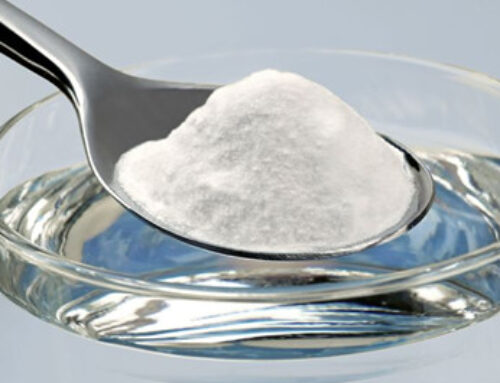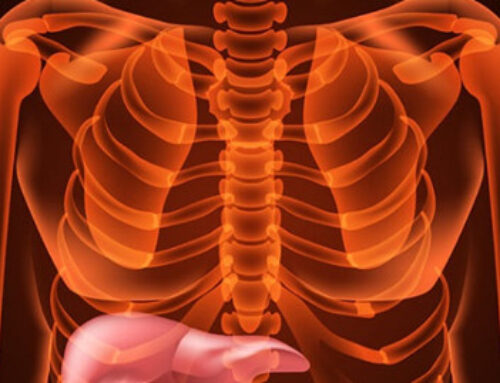Mental health issues are rampant today. Could amino acid deficiencies, caused by poor diet, be the reason why?
This article will focus on the building blocks of life: amino acids. I have been paying close attention to amino acids for quite a while now because of my fascination with them, and I think I am starting to understand just how important they really are. They are much more important than anyone can imagine, but they don’t seem to get the attention they deserve, considering they are exactly what our bodies are made from.
What are amino acids? Simply put, they are proteins that have been broken down into their constituent parts. But, they are so much more than that. The human body uses 21 amino acids to function properly (one of these was recently discovered). Ten of these amino acids are essential, which means we must get them from our food because we cannot make them ourselves. If we lack even one of our essential amino acids, this will result in a breaking down of our body’s proteins (i.e., muscle tissue, ligaments, etc.) to obtain the amino acid needed. Amino acids are not like fats and carbs—we can’t store them for later use, we have to take them in through our diet every day (1). The remainder of the amino acids, the so called non-essential ones, our bodies can manufacture.
Amino acids can turn themselves into thousands of different protein structures, which are used to build our muscles, bones, blood, neurotransmitters, and virtually all our tissues. This is why it is so important to eat a diet that is nutrient-dense, including good levels of high-quality, complete proteins. But, there are many people who eat plenty of protein and yet show problems with protein/amino acid deficiency. Why would this happen? The only logical explanation would be a problem with digestion or, more specifically, an issue with the ability to digest proteins. When the digestive process isn’t working as efficiently as it should be, we have to look at our stomach to understand what is going on. The stomach is the primary organ for protein digestion, and of the three macronutrients (fats, proteins and carbohydrates), protein is the most difficult to break down. To really break those proteins down into amino acids, we need optimal levels of hydrochloric acid (HCl) in the stomach. When we don’t produce enough HCl (which may be due to PPI medications, stress, and the standard American diet; see my article: PPIs, A Cure Worse than the Disease Itself?), the proteins are not broken down properly. Over time, this results in protein deficiencies.
One such protein deficiency can manifest as a neurotransmitter imbalance. Neurotransmitters are our brain chemicals. Brain chemistry imbalances are, unfortunately, more common now than ever before. Today, one in five adults struggles with mental illness (2). They affect every aspect of our mental health and the quality of our lives. Low levels of certain neurotransmitters lead to depression, chronic feelings of sadness, a low pain threshold, anger management issues, chronically tense and cramping muscles, a racing mind, insomnia, inability to focus, inattentiveness, brain fog, addiction issues (especially sugar addiction), and many other mental health issues.
The big question I have to ask is: how many people who are struggling with mental health issues are really dealing with an amino acid imbalance issue? When you consider that our modern American diet is really a diet of many deficiencies, it is logical to reason that perhaps many people who feel symptoms of low neurotransmitter levels are truly struggling with amino acid deficiencies. Let me talk about a few common amino acids that are crucial for optimum brain health.
GABA- this amino acid is also a neurotransmitter. GABA is our brain’s natural valium—it calms us and keeps us emotionally stable. When our brains are low in GABA, we tend to perseverate over details that are much less important than the time we give them mentally. This keeps some people from being able to shrug off unimportant details and can make it very hard to quiet the mind when ready to sleep, even when exhausted. People who are low in GABA often feel like they can’t relax, even though they want to—their muscles are tense and sometimes they have a hard time loosening up. When GABA levels are low, panic attacks can result and anxiety becomes a problem. As you can see, we really need good levels of GABA to function optimally and to feel confident, relaxed, and secure in ourselves and others.
Another important amino acid is tyrosine. The group of brain chemicals called catacholamines are responsible for helping us with our levels of energy and motivation. Catacholamines paint a colorful world for us to live in. Without this group of brain chemicals, our world looks flat. Tyrosine is the amino acid that catacholamines are made from. If you are a lover of coffee and need to drink it, or nibble on sweets all day to keep your energy up, you may be deficient in tyrosine and therefore low in catacholamines, requiring coffee and/or sugar to boost your energy and motivation rather than natural sources. Dopamine, our “feel-good” neurotransmitter, is synthesized from L-dopa, which comes from tyrosine (3).
Tryptophan is another very important amino acid. Tryptophan converts to 5-htp, which converts to serotonin, which converts to melatonin. Tryptophan is commonly deficient, but necessary for good brain health. Have you ever had a day you just need to get through? You see everything through a lens of negativity, and feel like beating yourself up? Are you that person who starts to have carb cravings in the afternoon and evening? Serotonin is a neurotransmitter that drops as the day goes by, and if you start your day with lower than ideal levels of serotonin, by the afternoon your levels can be too low and the unhealthy food cravings (like refined carbs) kick in. Carbs and sugar convert easily to glucose and glucose is used to start the serotonin synthesis process, which can bring those levels of serotonin back up again. Obviously, this is not the healthiest way to get your levels of serotonin up—the best way is to maintain a diet with healthy levels of tryptophan, and avoid the negative side effects of deficiency.
Eating a healthy, balanced diet with an adequate amount of quality protein, especially from grass-fed beef, will give you the raw materials to rebuild neurotransmitters in the brain. We really need complete proteins to obtain essential amino acids. Plant source proteins are simply not as good as animal proteins. They are not complete (meaning they do not have all the amino acids the body needs). Amino acid deficiencies can be the result of a vegetarian or vegan diet. Making the change to eat well all the time will result in better mental health across the board. Maybe the road rage we see so commonly is really just a simple amino acid deficiency!
Also see my article: Oh! but, Grandmother, What Foggy Brains you Have!
Cited References:
- The Biology Project. The Chemistry of Amino Acids. The Biology Project web site. Available here. Published September 30, 2003.
- National Alliance on Mental Illness. Mental Health by the Numbers. NAMI web site. Available here. Published 2017.
- Hinz M, Stein A, Uncini T. Relative nutritional deficiencies associated with centrally acting monoamines. Int J Gen Med. 2012; 5:413-30.










